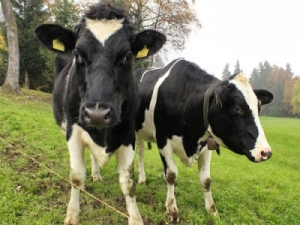Genetics, Efficiency and Performance: How the Burgesses are raising the bar at Te Poi
Bill and Michelle Burgess had an eye-opening realisation when they produced the same with fewer cows.
 The attitude schools hold towards agriculture needs to change to encourage teachers to promote it as a great career choice – especially by young Maori.
The attitude schools hold towards agriculture needs to change to encourage teachers to promote it as a great career choice – especially by young Maori.
DairyNZ's Maori development manager Tony Finch says the industry needs to help cause a paradigm shift.
The attitude schools hold towards agriculture needs to change to encourage teachers to promote it as a great career choice – especially by young Maori.
Research funded by Primary Growth Partnership shows that 9% of the dairy workforce is Maori, and 25% of workers who leave the industry every year are Maori, versus 15% who are non-Maori.
Finch believes that overall Maori are quite well represented in the dairy industry, but says as Maori aspire to make more use of their land, more young Maori will be needed.
The reasons for Maori not taking up careers in dairying are no different from those of non-Maori, he says.
"I don't think it's any different from the local population's view of dairying. It is not a great perspective; it's generally thought to be an isolated job away from the urban areas and this generation doesn't like that much," Finch told Rural News.
"There is a perception of long hours and dirty work and for all those reasons dairying doesn't come across as the most attractive career option."
Finch says when he was at school agriculture was seen as the career choice for 'dummies' and says there are now many initiatives to change the perception school teachers have of agriculture. Teachers are still as influential in forming young people's career choices as they were in his schooldays.
"They need to understand that agriculture is not just hands-on physical work, but covers sciences, finance and a raft of great, exciting and rewarding careers," Finch adds.
"Dairying is quite a different beast these days with technology and the way sheds are designed and the land farmed. There's a need to improve the perception and make people aware of what is happening in the industry."
Finch says for young Maori there are lots of opportunities as Maori set about pooling resources and creating larger, more economic farming units.
"There is a lot of land sitting idle which can be developed and improved and dairy is an opportunity in waiting. As well, there is still a huge amount of productive capability sitting in the industry.
"While there are many great Maori farms, a large number still operate below the industry average productive capability. That often comes down to people capability, so there is a need to get people with the right skills to run a business."
Finch says part of the solution is promoting leadership within Maori youth. He says the Young Maori Farmer of the year competition, run in conjunction with the Ahuwhenua Awards, is one such successful mechanism.
Legal controls on the movement of fruits and vegetables are now in place in Auckland’s Mt Roskill suburb, says Biosecurity New Zealand Commissioner North Mike Inglis.
Arable growers worried that some weeds in their crops may have developed herbicide resistance can now get the suspected plants tested for free.
Fruit growers and exporters are worried following the discovery of a male Queensland fruit fly in Auckland this week.
Dairy prices have jumped in the overnight Global Dairy Trade (GDT) auction, breaking a five-month negative streak.
Alliance Group chief executive Willie Wiese is leaving the company after three years in the role.
A booklet produced in 2025 by the Rotoiti 15 trust, Department of Conservation and Scion – now part of the Bioeconomy Science Institute – aims to help people identify insect pests and diseases.